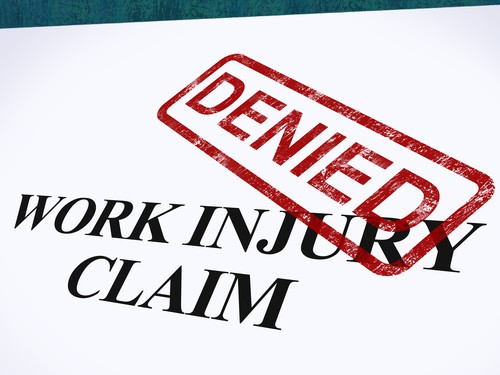
What Injury Triage Is
Injury triage for workers comp is using a formal process to assess an injured employee’s medical needs at the time of injury and then to guide the injured employee into the medical treatment process. The best triage services use trained nurses, clinical algorithms designed for occ health injuries, and software to deliver accurate and consistent assessments. Simple injuries can be addressed with self care and first aid. More serious cases are referred to appropriate providers for more care.
Click Link to Access Free PDF Download
“13 Research Studies to Prove Value of Return-to-Work Program & Gain Stakeholder Buy-In”
Injury Triage Produces Best Results At Beginning of Claim
Injury triage produces the best results when it is at the very beginning of the claim. In all cases, if triage is used before the injured employee goes to a doctor, triage can help ensure the right level of care is obtained and an in-network preferred provider is used. In fact, if used as an immediate injury response, some unnecessary claims can be avoided altogether if they are determined to be minor first aid cases.
Injury Triage Backs Up the Supervisor
In many companies, when an employee is injured, the employee reports the injury to the employee’s supervisor. While the supervisor can record the basic information about the accident, the supervisor will normally have no idea of what medical treatment is needed, nor the authority to make that determination. Either person could over-react or under-react. Typically, then, the supervisor will instruct the employee to “go to the doctor”, and that will be the end of the supervisor’s medical involvement. Triage provides the supervisor with an on-demand back up from a qualified professional to assess the injury and determine the best course of action.
Injured Employee Immediately Speaks To Trained Medical Professional
When an employer has injury triage as an essential part of their workers’ compensation management program, the injured employee reports the injury to the injury triage company’s call center. The injured employee talks immediately to a trained medical professional, usually a triage nurse. The triage nurse, who is experienced in dealing with injured people, and who has been trained in medical interviewing techniques, assesses the nature and extent of the employee’s injury and provides treatment recommendations. Talking to a trained, experienced professional helps reassure employees and provides credibility to their recommendations.
Triage Facilitates Claim Reporting
In addition to the medical interview, the triage nurse obtains the accident details and claim information, which can be used to complete the Employer’s First Report of Injury. The claim information can then be relayed electronically to the employer’s claims staff, TPA, or both. Many triage users experience decreased lag time in claims reporting.
Triage Algorithms Affect Outcomes
The triage nurse does not have the benefit of examining the injured employee in-person, so cannot get blood pressure, pulse and other traditional components of injury exams. Instead, the nurse must rely on questions and answers. Based on the employee’s answers to each question, the nurse can determine the best approach for the employee’s medical care. The quality of the triage algorithms that determine the questions is key to consistent and accurate triage outcomes. Features of the best triage algorithms include: being designed specifically for workers compensation injuries, able to triage multiple injuries simultaneously, and organizing questions to identify the most acute symptoms first.
Triage Determines Appropriate Level of Medical Care
The purpose of the triage nurse’s questions is not to provide a diagnosis by telephone, but to evaluate the appropriate level of medical need. Based on the employee’s answers to the questions asked by the nurse, the employee is directed to First-Aid, or to a local walk-in clinic, or to a medical specialist, or to an emergency care facility. By directing the injured employee to the appropriate level of medical care, workers’ compensation claim cost is reduced. An example of this cost savings: An employee whose medical need can be handled by the local walk-in clinic gets a bill for $200. If the same employee takes his medical need to the hospital emergency room, the bill could be $2,000. When triage is used to direct employees to in-network providers (where allowed by state laws), further savings can be achieved, especially on larger lost-time cases.
Follow-up Calls Are Not Case Management
The best triage providers allow inured employees to call back if they have questions about their injury, if new symptoms develop or symptoms worsen. These follow-up calls are different from case management to assist the injured employee throughout the course of the claim. Not all injuries need to become claims, and not all claims need case management. Usually, once an injured employee obtains medical care from a provider, a claim is established with a diagnosis, and follow-up care transfers to the employers claims and case management process.
FREE DOWNLOAD: “13 Research Studies to Prove Value of Return-to-Work Program & Gain Stakeholder Buy-In”
Triage Risks
For all its potential value, like most services, triage does carry risks and not all triage services provide the same results. The underlying clinical algorithms must be solid to ensure triage accuracy – under assessing severity can lead to complications and delay care; while over-assessing can lead to unnecessary claims, costs and business interruption. Algorithms that are too broad can pull in underlying medical conditions that are un-related to the work incident. Triage systems that are not compliant with how they store and transmit data risk PHI privacy violations. Triage without software and systems to organize and standardizes the process risks variability between cases, and inconsistency between nurses. Triage can create potential conflicts of interest if the triage provider also derives revenue from claims or from network providers, or if the triage provider only bills claims files.
Bottom Line: Injury Triage Reduces Costs and Improves Medical Experience
There are additional benefits of injury triage besides guiding the employee’s medical treatment. Injury triage provides a positive experience for injured employees with immediate access to medical help, in contrast to the long travel and wait times that frequently occur with tradition clinic visits. Triage can also provide translations in real time for non-English speaking employees. Some triage services can provide transcripts or recordings to help claims managers investigate the circumstances of the accident. Triage can help safety professionals by collecting initial incident data and alerting the safety team. By controlling the medical care and managing the delivery of the medical care, the triage nurse reduces the medical cost of the workers’ compensation claim, while improving the overall medical experience of the injured employee.
 Author Michael Stack, CEO Amaxx LLC. He is an expert in workers’ compensation cost containment systems and helps employers reduce their workers’ comp costs by 20% to 50%. He works as a consultant to large and mid-market clients, is a co-author of Your Ultimate Guide To Mastering Workers Comp Costs, a comprehensive step-by-step manual of cost containment strategies based on hands-on field experience, and is the founder & lead trainer of Amaxx Workers’ Comp Training Center, which offers the Certified Master of Workers’ Compensation national designation.
Author Michael Stack, CEO Amaxx LLC. He is an expert in workers’ compensation cost containment systems and helps employers reduce their workers’ comp costs by 20% to 50%. He works as a consultant to large and mid-market clients, is a co-author of Your Ultimate Guide To Mastering Workers Comp Costs, a comprehensive step-by-step manual of cost containment strategies based on hands-on field experience, and is the founder & lead trainer of Amaxx Workers’ Comp Training Center, which offers the Certified Master of Workers’ Compensation national designation.
Contact: mstack@reduceyourworkerscomp.com.
Workers’ Comp Roundup Blog: http://blog.reduceyourworkerscomp.com/
©2022 Amaxx LLC. All rights reserved under International Copyright Law.
Do not use this information without independent verification. All state laws vary. You should consult with your insurance broker, attorney, or qualified professional.




























